#paul i of the hellenes
Explore tagged Tumblr posts
Text



Some of the gang that I don't draw much, cause it was the story's birthday yesterday ✨
#they're hard to draw for some reason#Hiro is easy some days tho#i think you know why there are color blobs by Hellen's head#hehe art fight...#oc#doodle#eyurenious'gaurdians#digital#hiro#hiromi#Hiromi Tatsumo#Mathew#Mathew Tatsumo#Mizu#Mizuki#Hellen#Hellen Heizerdmann#Henry#Henry Heizerdmann#I was gonna do a Paul but he's just too hard to draw djsnd
10 notes
·
View notes
Text
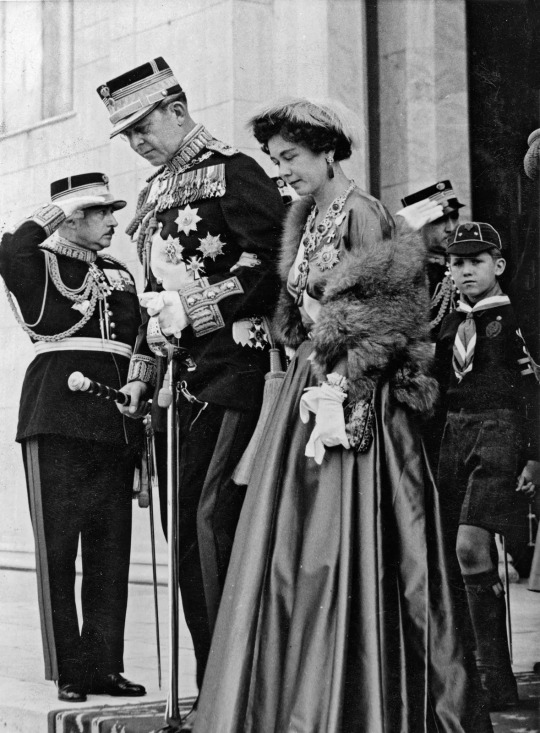
King Paul I and Queen Frederica of the Hellenes.
#greek royalty#king paul i of greece#king paul i of the hellenes#queen frederica of greece#queen frederica of the hellenes
9 notes
·
View notes
Note
Thank you for clarifying your stance on veiling! Many practitioners say that "Hera/Hestia wanted me to veil" and I didn't want to doubt anyone's practice but it did raise an eyebrow. Also I've seen "Does x deity require veiling?" "No but she will ask you to, it's still your choice" this always confused me because aren't you supposed to do something if a deity asks? (Ancient Greek perspective)
I will never stop anyone from dressing however they like but please understand I'm free to express my opinion on the matter, especially when my heritage is used to promote trends that my society has left behind for a good reason. What's more, Hellenic Polytheism practices are not separate from the Greek culture, since Greek people still practice the same customs and know their logic.
It looks to me that veiling among modern Western neopagan women started as an aesthetic first, and that's why they have turned it into a choice. If they do it "for the religion/deity", how come they don't really believe that showing your hair is shameful after a certain age?
I mention shame because it plays a part here. These people misunderstand the reason why our ancient women veiled, probably because they are not familiar with the Greek culture, or similar cultures where people know why women used to veil. Our women didn't have any "spirituality tied to their hair to protect under the veil", like I've seen some western neopagans say. Our women were simply deemed harlots if they showed their slutty hair to people who were not their husbands.
I am exaggerating a little here but that's the basis of the societal norm. In Greek tradition for more than two thousand years, if you passed girlhood you had to start hiding more and more of your body, lest you entice the males or communicate that you want to entice the males. After marriage, the style became even more restrictive because only your husband should see your κάλλη (physical beauty). Your demeanor should be more serious, as well, the more you age, because if you danced or spoke a certain way, you were seen as frivolous and shameful.
It was society, not the gods that wanted them to veil. I said in an older post that veiling is not inherently oppressive and braiding and covering your long hair can help you during manual labor in many practical ways. And of course, your hair is less exposed to the elements, hence a veil will keep it protected (and also cover your shoulders for warmth in the cold Greek mountains in the winter). I am sure women in many nations started covering their hair for a reason and then it became the norm.
Societal norms have always affected religion. Ancient people who discussed veiling usually did not mention religious reasons but reasons for ευπρέπεια, decency, and the good of the community. What is more, veiling is not tied to the ancient Greek religion because it didn't stop for the Greeks when Christianity came. There are many negative comments have been made about Christian Greek women who didn't veil or who found workarounds to veiling.
In Apostle Paul's words, women should be veiling a lot in religious contexts. His opinion expressed what the ancient society around him deemed a basic dress code, not Jesus' words. Today Greeks don't veil because we don't think covering your hair makes you more respectable as a woman. Only our nuns veil, following the strictest dressing code from the Byzantine years.
Another argument from my side is: our ancient women had no choice on the matter so why is it suddenly a choice for neopagan women? Don't both groups follow the same deities? The deity is suddenly okay with their women worshipers not being decently dressed according to the ancient standards? I mean, why will the deity ask you to veil in the first place if they don't still have the same dress standards?
If it's on the worshipers to decide if deities will want them to veil, or what the deities would want... I don't know... As an outsider I get the impression that they don't communicate with the deities as well as they think.
On the "the deity asked me" part: I am sure there are many people out there who take their practice seriously but there are also many people who think the deity pops into their head with recommendations. The way those people seek signs and explain "omens" is... weird, for lack of a better word. An omen for them is "I went to the store and there was a really nice scarf there in the colors of my deity, so that was clearly a sign that I should veil." Sorry, that's not compatible with the Greek customs and the religion you want to follow. An Omen is something shaking and a clear intervention. Not a sun ray on your desk or a song that came on the radio.
And what would that "recommendation" communicate in the first place? Probably something along the lines of "Hellooo Jessie! Hey, would you please do me a favor and cover your head because it is shameful for a woman of your age to show her hair? Thanks!"
Sorry if my statements come off a little harsh but those are genuine thoughts I have, and have seen other Greeks express with some confusion. Please know I am not attacking you as a person, but I simply tell you what I think and how certain things the HelPol community does can look from the outside.
For the people who veil because they genuinely believe that a decently dressed woman should veil, I disagree with your opinion on women's "value" but at least there is no hypocrisy on your part. If, according to your culture, you have energy on your hair that you'd like to protect then I understand that too. On the contrary, if you find a million other reasons to veil except decency or the practices of your people, then clearly you have something else in mind.
19 notes
·
View notes
Text
ABOUT THE WRITER + MASTERLIST

AUTHOR'S STATEMENT ON PALESTINE
Click on this link if you want a Heartless update
Hi!
It’s starting to look like I need to make a masterlist of my fics, so I figured I’d do that and introduce myself while I’m at it!
You may call me ofsappho, or if you would prefer more of a *name*, I have been known to answer to Ophelia. I’m 22, I am Filipino and Chinese, I use they/them pronouns. Located in America, so please pardon the Americanisms. When it comes to writing stuff about trauma, mental health/mental illness, physical disability, chronic illness, I write from my experiences and the experiences of my loved ones.
I also do other things with this blog, like post about Ancient Greece, memes, poetry, whatever the hell I want.
I am a Hellenic polytheist, which TLDR means that I worship the Ancient Greek gods as they were worshipped in Ancient Greece, so I do post religious stuff as well. Feel free to ask me abt that by the way, or send me asks in general!
Want to help me with my ongoing medical costs? Here’s my kofi!
🔞🔞🔞
My fandoms:
The Sandman (comics and tv show)
Call of Duty
Dune
My AO3
If you search my blog, I have tags set for my two major fics so you can just click those and see everything tagged for those stories. The tag is just the title of the story.
I post a lot of random shit in the tags, updates on how things are going, etc, so here are all of the actual chapters (and extra) linked!
I also want to add that every reader character I write is plus sized/fat, though it’s done very subtly in the narrative and you are welcome to read them anyway you’d like.
Heartless (Simon “Ghost” Riley x fake marriage!Reader):

masterlist
Also keep an eye out for @cuckoo-on-a-string ‘s upcoming Price x Reader marriage of convenience fic, which is related to Heartless!!! Teaser here.
Summertime Sadness (Simon "Ghost" Riley x second chance romance w/ heavy angst Reader):

Chapter 1
Chapter 2
Chapter 3
Chapter 4
Chapter 2 preview
Chapter 3 preview
Chapter 4 preview
treehouse (Dream of the Endless x pregnant!Reader):

masterlist
THE KNIFE OF MUAD'DIB (Paul Atreides x OC!Reader x Chani)

Part 1: Jessica
Part 2: Paul
Part 3: Duncan
Magindara (Dream of the Endless x mermaid!Reader)

Tumblr
AO3
Let The Good Times Roll (Captain Price x sugar baby!Reader):

Part 1
Sneak peak
Sneak peak 2
Sneak peak 3 bcuz I have no self control
306 notes
·
View notes
Text
Too true
Every merc in tf2 is feral
Different types of feral, but feral all the same
#Hellen wants to but she’s gott to keep up looks#I bet her and Engie to weird shit all the time#bet they go out shit talking people from a company van then speed off#Miss Pauling and her have also done this
209 notes
·
View notes
Text

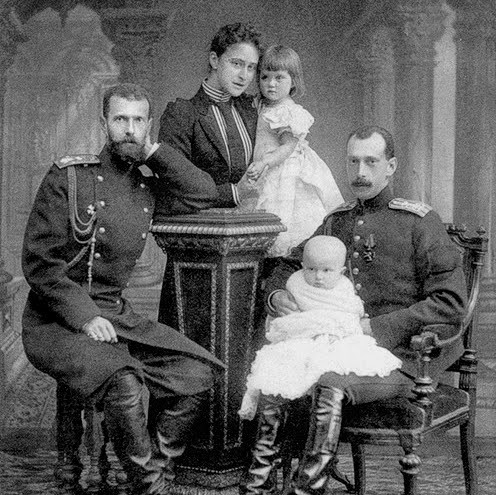
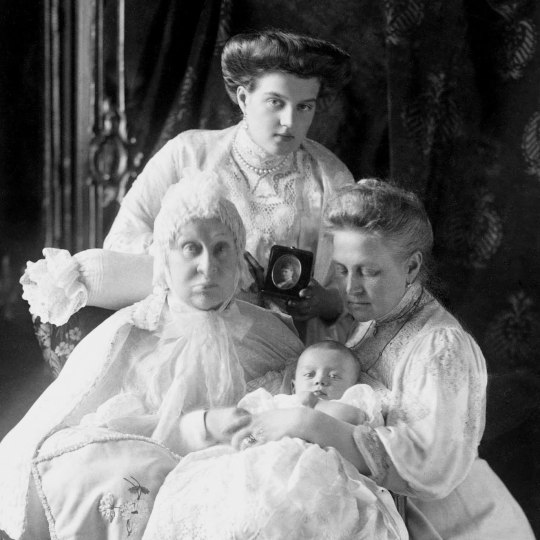

April 18, 1890 - Grand Duchess Maria Pavlovna was born in St. Petersburg as the daughter of Grand Duke Paul Alexandrovich and Grand Duchess Alexandra Georgievna. This means she was a cousin of Tsar Nicholas II and Prince Philip, the Duke of Edinburgh. She was named after her late grandmother, Empress Maria Alexandrovna, and her aunt, grandaunt, and godmother, Empress Maria Feodorovna.
Maria was not yet two years old when her mother died from complications after giving birth to Maria's younger brother, Grand Duke Dmitri Pavlovich. Grand Duke Paul was so distraught by the unexpected death of his wife that he neglected his two small children, who were left in the care of his elder brother, Grand Duke Sergei Alexandrovich. Growing up without a mother and a frequently absent father, Maria and her brother Dimitri became very close, relying on each other for affection and companionship.
Shortly after Easter 1907, Prince Wilhelm, Duke of Södermanland, visited St. Petersburg and was introduced to the 16-year-old Maria Pavlovna. The prince was tall, thin, dark, and distinguished-looking "with beautiful grey eyes," Maria recalled in her memoirs. He stayed for dinner, and the following day, Maria was told that he wished to marry her. The official betrothal was announced in June 1907 at Peterhof Palace.
Maria Pavlovna later wrote that she felt her aunt had rushed her into the marriage. In her memoirs, Maria wrote: "I was using Wilhelm, in a sense, only to obtain my freedom." She and Prince Wilhelm married the following year in Tsarskoye Selo, and she became Princess Maria, the Duchess of Södermanland. The couple had one child together in 1909, Prince Lennart (later Lennart Bernadotte).
Their marriage was not happy, and they dissolved in March 1914. Maria returned to her home country in the same year as the divorce. After the revolution, she fled to France, and towards the end of her life, she lived in Konstanz, West Germany, near her son Lennart and his family.
Photo 1: Prince Wilhelm and Grand Duchess Maria Pavlovna photographed on their wedding day in 1908. Photo 2: Grand Duke Sergei Alexandrovich and Grand Duchess Elizabeth Feodorovna photographed with Grand Duke Paul Alexandrovich and his children Dmitri and Maria in 1892. Portrait taken from Wikimedia Commons. Photo 3: Photograph of Grand Duchess Alexandra Iosifovna, her daughter Queen Olga of the Hellenes, her great-granddaughter Princess Maria and her great-great-grandson Prince Lennart of Sweden. Princess Maria is holding a photograph of her mother, Grand Duchess Alexandra Georgievna. The photograph was taken in 1909. Photo 4: Prince Wilhelm and Princess Maria were photographed together in 1908 at their home, Stenhammar Castle. Maria is pictured wearing the Sweden dress. Portrait taken from Wikimedia Commons.
#swedish royal family#russian imperial family#royal history#grand duchess maria pavlovna#princess maria#prince wilhelm#prince wilhelm of sweden#prince lennart#lennart bernadotte#on this day#today in history#swedish history#russian history#my upload
11 notes
·
View notes
Text
That, in this case, Μινδαδοέσσα. Περὶ τὰ οὐράνια σύνταξις can be but the Babylonian-Hellenic double title of such a Babylonian-Greek astronomer’s work, I hardly need to prove!
(Paul Schnabel, Berossos und die babylonisch-hellenistische Literatur, 1923, p. 133; translation mine.)
Just once I would like the self-confidence of an early twentieth century philologist.
#assyriology#ancient greek#berossus#i dont need therapy i need to be 100 % convinced ive identified a babylonian-greek work on astronomy based on not a lot of evidence#actually i also need therapy
2 notes
·
View notes
Text
thinking about how my Horrible Horrible Mother would watch me write down demographic information on papers and get really mad that i didnt put native american when i look like paul dano was transmasculine. like Yes mother i know your biological mother is 100% indigenous but your bio father is 100% hellenic greek and frankly i connect closer to that culture than Houma Indian culture even though you brought me to two tribe meetings when i was less than four years old. I am more in line with an old Greek man chowing on a gyro with extra tzatziki sauce while watching construction than i am native american people as a whole because I did not grow up in that culture.
2 notes
·
View notes
Photo

I consider myself King of the Hellenes and sole expression of legality in my country until the Greek people freely decide otherwise. I fully expected that the military regime would depose me eventually. They are frightened of the Crown because it is a unifying force among the people.
- King Constantine II of the Hellenes
An important chapter of Greek history ended on 11 January 2023, in Athens, with a deafening silence. The former king Constantine II died at the age of 82 in Athens. Some Greek media outlets referred to him as Constantine Glücksburg, not wishing to mention the royal title of the former monarch who was deposed in 1974.
The last member of the Danish dynasty to rule from 1863 until the return of the Parliamentary Republic was the cousin of the British monarch Charles III and one of the godparents of his son, Prince William, and the brother of Queen Sofia of Spain. But his death caused barely a rustle in Greece, a country that has been riven by divisions between royalists and democrats since its creation.
He was not given the state funeral he had so much desired. Neither the Greek Prime Minister, Kyriakos Mitsotakis, nor the President of the Republic, Katerina Sakellaropoulou, were present at his funeral on 16 January. His death "marks the formal epilogue (...) of a chapter that was definitively closed with the 1974 referendum," when Greeks voted by 70% to abolish the monarchy, said the prime minister in a terse message of condolence. The conservative leader also recalled "the eventful journey of former King Constantine, marked and punctuated by turbulent moments in the contemporary history of Greece." "History now has the floor. It will judge fairly and severely the Constantine of public life," he concluded.

The legacy of King Constantine II of the Hellenes remains a mixed one and mirrors the divided feelings of Greeks have to this day about their last king.
In many ways, Constantine was a victim of the vicious political infighting that had characterised Greek politics and its society for much of the period since the second world war. It perhaps needed a stronger, more experienced and more resolute approach to surmount the crises of his three-year reign than the young man in his early 20s could manage. In later life he said in an interview that he might have liked to be an actor or a journalist, but his fate was to spend his life as an ex-king, harried by Greek politicians and in turn harassing them in a prolonged legal fight for compensation for his family’s lost property, eventually through the European court of human rights.
Born in Athens, Constantine was the son of the Greek crown prince, Paul, the younger brother of King George II, and his German-born wife Princess Frederica, and was taken into exile as a baby following the Italian and then Nazi invasions of the country in 1940-41. His early years were spent first in Egypt and then in South Africa, before the family returned to Greece following the referendum that restored George to the throne in 1946. George died the following year, and Paul became king.
Constantine was educated at a private high school in Athens, modelled on the same lines as the German educationist Kurt Hahn’s principles at Gordonstoun, and afterwards attended Athens University to study law. A keen sailor, Constantine was a member of Greece’s winning sailing team at the 1960 Rome Olympics – the country’s first gold medal in nearly 50 years.
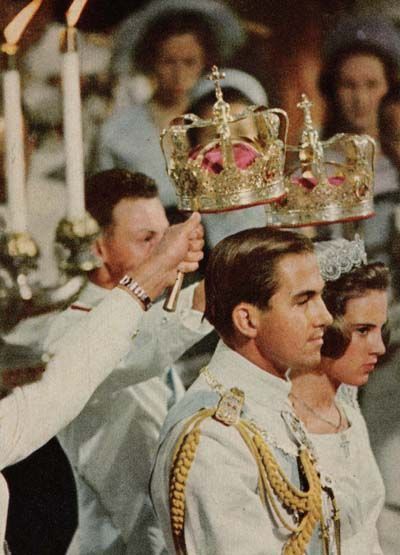
He succeeded to the throne aged 23 on his father’s death in March 1964, becoming head of state in a country that had not got over the civil war between communists and the Greek government of 1946-49, and where political tensions and divisions continued to run deep. The CIA, desperate to avoid Greece falling into communist hands, was also active in Athens. Greece was a strategic pawn between the US and the Soviet Union, each anxious to pull the country into its sphere of influence in the eastern Mediterranean. At the same time, it was attempting to modernise with social and economic reforms as an associate member and applicant to join the Common Market.
The month before Constantine came to the throne, a general election had produced a leftwing government under George Papandreou, following eleven years of rightwing government. Within a year, relations between the king and his prime minister were breaking down. Conservative army officers were alarmed by a perceived leftwards drift among the junior ranks, who were supported by Papandreou’s Harvard-educated son Andreas. When George Papandreou announced that he would take over the defence ministry himself, Constantine refused to allow him to do so, and the government resigned. In the hiatus that followed, the king attempted to appoint a government without holding an election and was accused of acting unconstitutionally.

When elections were finally called in April 1967, the likely re-election of Papandreou was forestalled by an army coup led by colonels. Constantine initially appeared to go along with the insurgents. He argued later that he had had no choice as the palace was surrounded by army tanks, but there were also persistent suggestions that he had been urged by the American embassy to do so in order to avoid another radical government. Many Greeks and civilian politicians never forgave the king for acceding to the coup, but within months he attempted a counter-coup of his own, fleeing to loyalist troops in the northern city of Kavala that December in an attempt to create a rival military support and force the junta to resign.
The operation was poorly organised and, although the air force and navy declared their support, the army and its officers rallied to the coup leaders. Support for the king melted away within 24 hours. Fearing bloodshed if it came to a military confrontation, Constantine and his family fled into exile, first in Rome and then a few years later in London.

There was no going back for the king. The junta, led by Colonel Georgios Papadopoulos, brutally consolidated their regime using censorship, mass arrests of opponents, torture and imprisonments, and were not going to reinstate Constantine after his attempted coup. When monarchist navy officers unsuccessfully attempted to overthrow the colonels in June 1973, Papadopoulos declared the country a republic, endorsed subsequently in a plebiscite widely assumed to have been rigged.
Nonetheless, when the regime fell following the Turkish invasion of Cyprus in 1974, to be succeeded by a civilian government, a further referendum was held to determine whether the king should be restored. Constantine was not allowed to return in order to campaign on his own behalf, though he was allowed to broadcast an address from London in which he apologised for his previous errors. But his maladroit interference with the civilian governments before the coup was held against him and the outcome of the vote in December 1974 was heavily in favour of a republic: by 69% to 31%.

Thereafter, for decades, Constantine was prevented from visiting Greece except briefly and on rare occasions: for his mother’s funeral in 1981 and for an attempted holiday in 1993, when he found his yacht was constantly harried by torpedo boats and aeroplanes. The following year, the Greek government revoked his citizenship and passport and seized the royal family’s property. “The law basically said that I had to go out and acquire a name. The problem is that my family originates from Denmark and the Danish royal family haven’t got a surname,” he said, adding that Glücksburg was the name of a place not a family: “I might as well call myself Mr Kensington.”
In 2000, the court of human rights found for the king in relation to the property, though it could only order compensation, not the return of his extensive estates nor the royal palace at Tatoi and awarded him only 12m euros (around £10m), rather than the 500m he had asked for: a reduction that the Greek government counted as a triumphant vindication. It nevertheless took another two years to pay the money and, when it did so, the government took it from its extraordinary natural disasters fund rather than general reserves. In retaliation, Constantine used the money to set up a charitable foundation in the name of his wife to assist Greeks suffering from natural disasters. He said: “I feel the Greek government have acted unjustly and vindictively. They treat me sometimes as if I am their enemy – I am not the enemy. I consider it the greatest insult in the world for a Greek to be told he is not a Greek.”

Generally, while expressing a wish to be allowed to live in Greece, which was granted in 2013, Constantine seemed equable about his fate and did not attempt to regain the throne. “All I want is to have my home back and to be able to travel in and out of Greece like every other Greek. I don’t have to be in Greece as head of state. I am quite happy to be there as a private citizen,” he told the news media in 2000. “Forget the past, we are a republic now. Let’s get on with the future.”
By the standards of the hapless Greek monarchy, Constantine II, the last king of the Hellenes, who died aged 82 on 10 January 2023, led a comfortable life in exile after a brief and turbulent reign. Of the seven Greek monarchs of the 19th and 20th centuries, three were deposed, one assassinated, two abdicated and one died of septicaemia after being bitten by a barbary ape in the royal gardens.
The Glücksburg monarchy was German-Danish in origin, imposed on Greece in the 1830s. During prolonged wrangling after Constantine’s deposition, the Greek government refused to give him a passport until he acknowledged that he was Mr Glücksburg, whereas he insisted he was just plain Constantine. As the last of Greece’s deposed monarchs he escaped lightly. But decades of exile in London, as one thing the Greeks did not want back from Britain, were not how he would have chosen to spend his life. For more than 20 years he was careful not to stir up anti-monarchist feeling in Greece, though he never relinquished his claim to the throne.

But Greeks have long memories. When the Greek colonels seized power in 1967, instigating seven years of tyranny, it was King Constantine who tried to stand up to them and rally the forces of democracy; but he did so rather naively and feebly.
Had Constantine succeeded, as did his brother-in-law Juan Carlos of Spain, he might have been a hero to his people. As it was, in the eyes of many Greeks, he remained tainted by family history and by his own clumsy mishandling of the political crisis that had brought about his exile. It’s a mistake he has freely acknowledged during the long 46 years of exile from his homeland.
There are Greeks still today who have always felt the referendum to depose him as King was rigged. For his part, Constantine, always continued to support democracy and the republic. Except with one caveat. According to many, Constantine never accepted his deposition. His Danish diplomatic passport still read "Constantine, King of Greece." In an interview with the television channel Skai in 2016, he even said: "I am not the former King Constantine, I am King Constantine, period."
In public at least, his fidelity to the republic bore fruit when he was allowed to come back to Greece and reside there. By all accounts his return from exile was a happy one where his home in Peloponnese coast gave him the peace he so long craved to live and eventually die in his own homeland. "All Greeks who live in exile want to return. It's in their blood," And so he got his wish. He was buried as a Greek, if not as a king.
RIP King Constantine II of the Hellenes (1940-2023)
#king constantine II of the hellenes#constantine II#greece#quote#royalty#monarchy#history#politics#coup#exile#king constantine II of greece
46 notes
·
View notes
Text





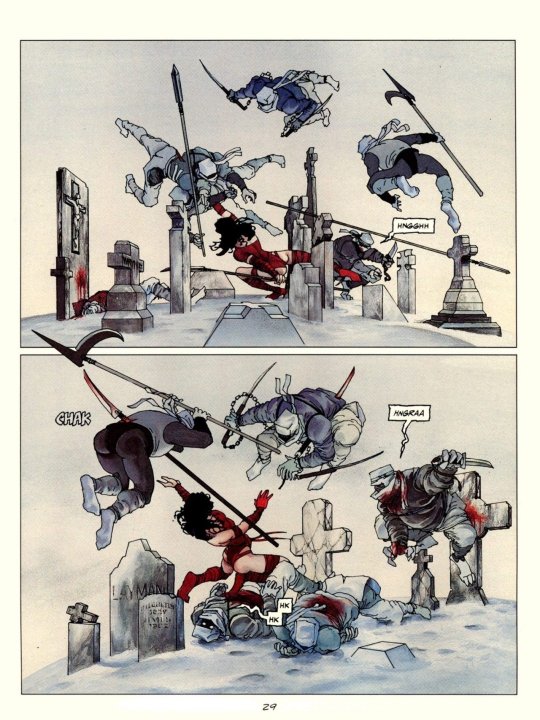





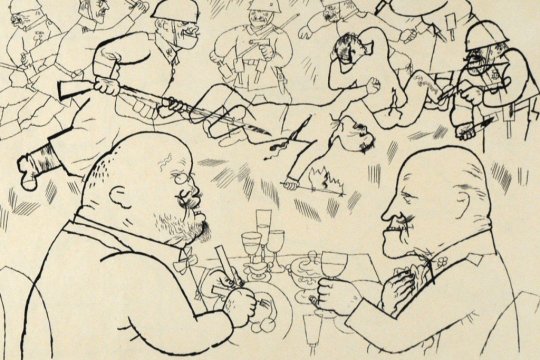

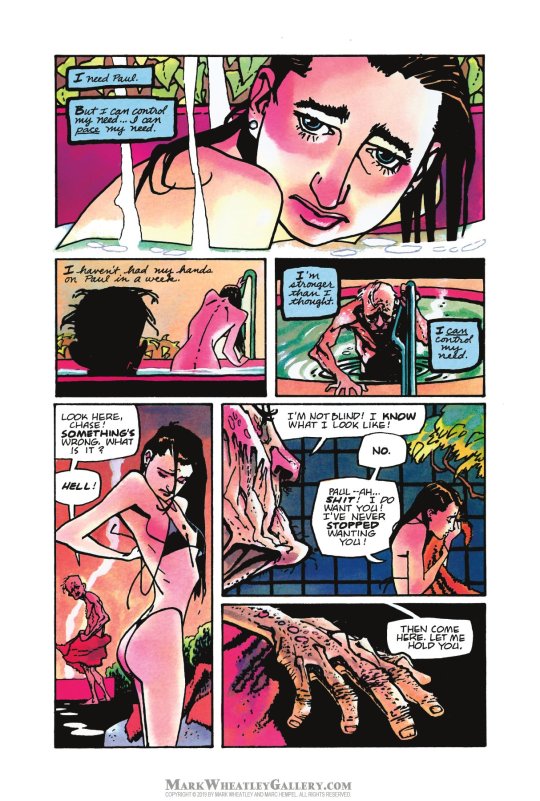
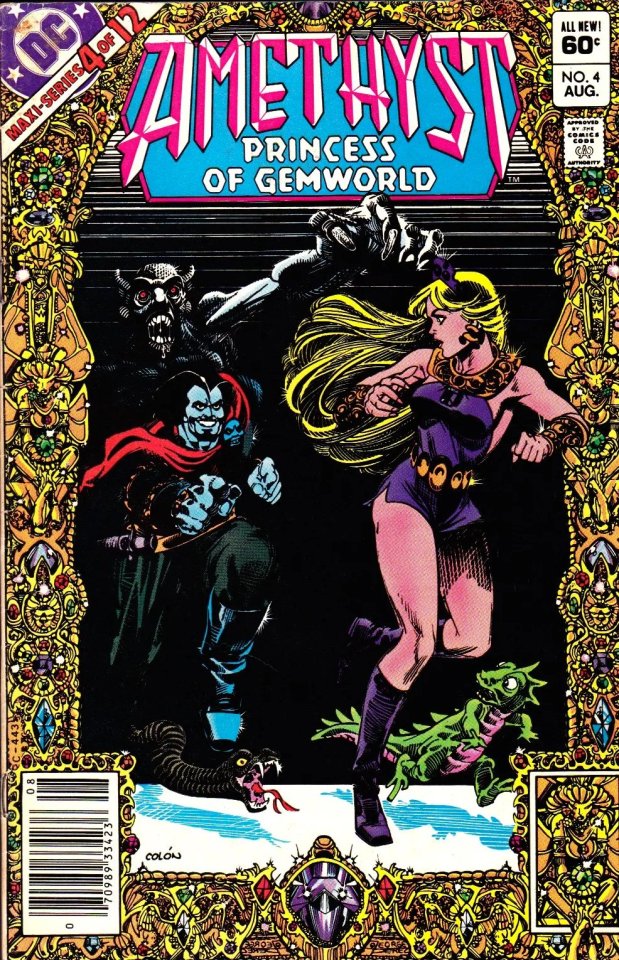
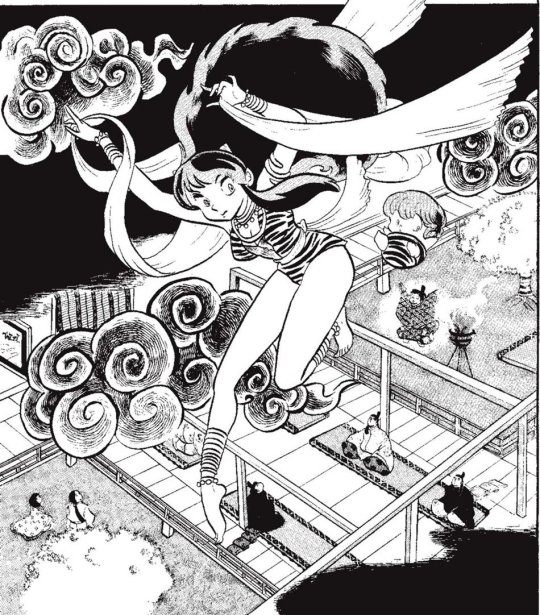





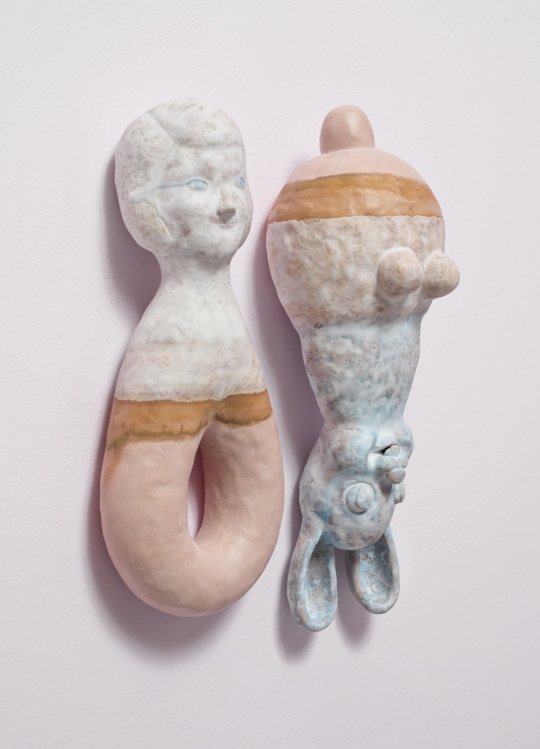

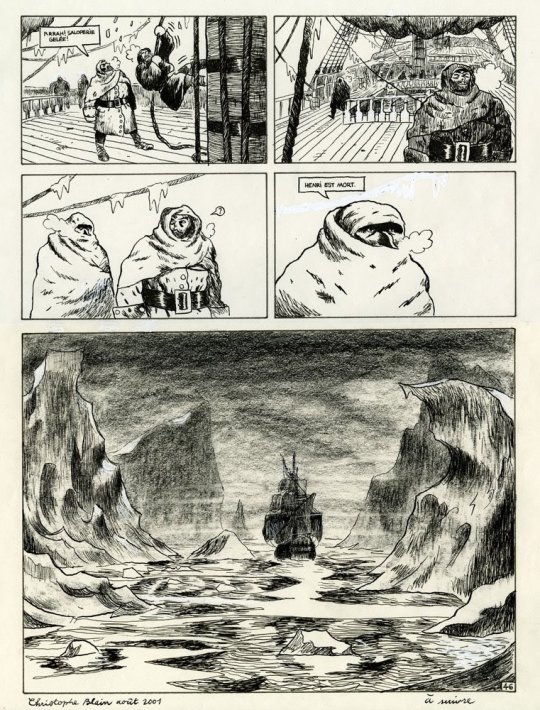
Archiving my artistic influences thread from twitter. I liked this exercise, for all the usual narcissistic reasons, but also bc by juxtaposing all these artists that have affected me, I see where they connect to each other as well as myself. - Part 1 - Part 2 - Part 3 -
Harold Gray Takashi Murakami Paul Pope Henry Darger Gary Panter Robert Rauschenberg Lynn Varley Frank Miller Shigenobu Ohashi aka Butanohana Bwana Spoons Aya Takano George Grosz Julie Doucet Mark Wheatley & Marc Hempel Ernie Colon Rumiko Takahashi Guy Davis Rick Veitch Ryan Cecil Smith Hellen Jo David Mazzucchelli Michaelene Walsh Keith Giffen Christophe Blain
#artistic influences#Harold Gray#Takashi Murakami#Paul Pope#Henry Darger#Gary Panter#Robert Rauschenberg#Lynn Varley#Frank Miller#Shigenobu Ohashi#Bwana Spoons#Aya Takano#George Grosz#Julie Doucet#Mark Wheatley & Marc Hempel#Ernie Colon#Rumiko Takahashi#Guy Davis#Rick Veitch#Ryan Cecil Smith#hellen Jo#David Mazzucchelli#Michaelene Walsh#Keith Giffen#Christophe Blain#Butanohana#comic books
83 notes
·
View notes
Text

Just stuff I felt like drawing ig
#Stella is dancing wil William btw#i realized her pose looks weird but yeah#that's what it is. lol#oc#doodle#eyurenious'gaurdians#shiningstars#Mark#Mathew#Kaiya#Stella#Stella Tennabris#James#James Tennabris#Chiko#Qin#Qin Shae-li#Paul#Paul Heizerdmann#Hellen#Hellen Heizerdmann#Mizu#Mizuki#digital
16 notes
·
View notes
Text
Been thinking about "Ruby is Jesus" rabbit hole. Assuming allusion continues and it wasn't just flavor for her death and ascension in Volume 9, what role would Cinder play as her rival?
Lucifer/Satan would be a tempting choice considering Cinder is draconic (very common way to portray Satan in Christian iconography) and her last name is Fall, but I don't think that's the case. In New Testament Satan appears mostly as a tempter, trying to make Jesus stray from his path. Cinder doesn't want Ruby on her side, she wants her dead, simple as that.
Salem makes significantly more sense as Satan, considering she fell from grace, she rebelled against God(s), tempted humanity away from God(s) and leads an army of what are essentially demons. She also fits the trope of Satan ruling (or at least having an authority over every kingdom in the world) the world in absence of God(s). Tempter and corruptor angle also works since as seen with Hound, Salem's goal is to turn silver eyed warriors into her obedient slaves.
So Satan allusion doesn't work with Cinder, but there is a Bible character that shares lot of her traits, and that's Saul/Paul. To return to dynamic from earlier, unlike Satan who tempted Jesus, Saul wanted to hunt down all of Jesus' disciples, matching Cinder's seething hatred for Ruby. Saul was present during an execution of Stephen, first Christian martyr.
This parallels Pyrrha's death in multiple ways:
Stephen was either Greek convert to Judaism or Hellenized Jew. Either way, this matches Pyrrha who's primary allusion, name and visual design are Greek.
Stephen means "the crowned one" in Greek. Crown was Pyrrha's most recognizable accessory and something she would have an authority over if she became Fall Maiden
Stephen is classified as Red Martyr, red is Pyrrha's color, both in name and in design
Pyrrha was the first major character to be killed since Penny and Oz both came back in subsequent volumes, matching Stephen's moniker of first martyr
However, to me most interesting parallel is Saul's encounter with Jesus on his journey to Damascus (to prosecute local Christians). Jesus appeared in front of Saul as bright light, blinding him and making him fall from his horse. Men travelling with Saul heard neither Jesus' voice nor saw the light.
Most major encounters between Ruby and Cinder involve Ruby using her silver eyes against her. Silver eyes abilities are shown as sudden bright light.
When Ruby used her silver eyes against Cinder for the first time, Cinder lost her eye, partial parallel to Saul losing his sight.
Jesus' bright light didn't affect anyone else in Saul's party. This is parallel to silver eyes having no effect on non Grimm. This parallels Haven encounter the best since Cinder was the only one affected out of all villains and heroes present.
Saul came to Damascus to prosecute Jesus' followers, Cinder takes the role of aggressor in all of her encounters with Ruby.
Falling off a high horse is idiom for prideful person being humiliated. Ruby made Cinder suffer humiliating setback at the end of Volume 3.
In the aftermath of that event, Saul started to believe in Christ. Jesus then sent a disciple named Ananias to heal his eyes. Saul became an apostle and one of the most influential people of early Christianity.
This part is for the most part speculative, but if taken to logical conclusion Cinder as Saul allusion could be another angle for Cinder's redemption. Saul became a believer after being blasted with bright light, this could happen if Ruby uses her silver eyes to purify Cinder's Grimm arm, freeing her both her self destructive quest for power and Salem.
Feel like Saul's conversion best matches what Cinder's theoretical redemption could look like. It's not like usual recruitment of apostles or disciples. For example, someone like Matthew/Levi was hated because of his job as tax collector, but he never did harm to Jesus or his followers. Saul was someone who genuinely hated them and actively participated in their prosecution. Initially they kept a distance from Saul due to his past transgressions, but eventually he was admitted to the community.
Plus there are some breadcrumbs for my usual "Jaune will redeem Cinder" theories since Saul sight was returned to him not by Jesus directly, but by disciple sent by Jesus (and Jaune is technically healer so that fits).
5 notes
·
View notes
Text
some more musings about religion
another thing i just don't like about christianity is that it's not something you can arrive at without the bible.
if you were born on an island and went through your whole life never reading the bible or talking to people who have read the bible.....you would not just naturally conclude the "truth" of christianity. you would never know about jesus, who he is, or about his sacrifice or the teachings of paul or the church fathers and so on.
but i think some kind of paganism is natural. that's why, before christianity, it was basically universal.
now, obviously, you won't perfectly derive hellenic polytheism or hindu polytheism or any other particular pantheon. but you will probably conclude that there are invisible forces and energies and that aspects of the world seem to have their own souls.
when i was a kid i was basically a pagan before i even knew what paganism was. i had imaginary friends. i believed trees and the wind and the sea were alive and could talk to me. no one taught me these things. these are just things i instinctively/intuitively felt about the world.
and then when you grow up you can use logic and reason to come up with some kind of "natural theology".
and it just seems like humanity is naturally predisposed toward some kind of paganism. and christianity, on the other hand, feels unnatural and artificial in comparison.
but that's just me.
2 notes
·
View notes
Text






Grand Duchess Alexandra Georgievna of Russia, nee Princess Alexandra of Greece and Denmark (1870 - 1991)
Her nickname was "Aline," her story is very sad and shows that even the wealthiest women were not exempt from fatal childbirth complications at the turn of the century. Many women of means made sure to have their wills made before giving birth, and all knew that taking to childbed carried the risk of death.
Aline was the third child and oldest daughter of Queen Olga of the Hellenes (nee Grand Duchess Olga Konstantinovna) and King George I of Greece (who was a brother of the Empress Maria Feodorovna.) Aline was beloved by her family for her beauty and, most of all, for her sunny disposition.
At age 18, Aline married Grand Duke Pavel Alexandrovich, the youngest brother of Alexander III. They had known each other most of their life, and the match was one of love.
Aline and Paul had two children, Maria Pavlovna, the younger, and Dmitry Pavlovich, who was born prematurely and never met his mother. In her seventh month of pregnancy, Aline sustained a fall while jumping on a boat and, later on in the day, went into labor and gave birth to Dmitry; she was unconscious for several days and then died. The exact cause of her death is unknown. The reason why this Grand Duchess and Princess did not seem to have received the best pre-intra and postpartum care available at the time is unknown also.
Photos: 1. Greek Royal Family, the sovereigns Olga and George are sitting, Aline is standing behind her father; 2. Aline as a young girl; 3.The Grand Duchess and Princess at around the time of her marriage; 4. Grand Duke Pavel Alexandrovich; 5. Grand Duke Pavel with his brother Grand Duke Serge Alexandrovich and his wife Ella (he lived with them before his marriage and also immediately after); 6. Grand Duke Pavel with his children, Grand Duchess Maria Pavlovna (the younger) and Grand Duke Dmitry Pavlovich
#russian history#imperial russia#romanov family#Grand Duke Pavel Alexandrovich#Princess Alexandra of Greece#Grand Duchess Alexandra Georgevna#Grand Duke Sergei Alexandrovich#Grand Duke Dmitry Pavlovich#Grand Duchess Elizabeth Feodorovna#Greek Royal Family#Olga#Queen of the Helenes#George I of Greece
17 notes
·
View notes
Note
I read about a pretty old post of yours about Vladimirovichi may I ask what are the other branches besides this? I am not really familiar with it at the same time I am curious who are their Family Head.
The branches are generally based on the sons of Nicholas I: Alexander, Konstantin, Nikolai and Mikhail.
The Alexandrovichi were obviously the main branch as belonging to the eldest son and thus future Tsar Alexander II. Many historians and enthusiasts further divide the Alexandrovichi from the main line by two sons of Alexander II, Vladimir and Paul, creating the subbranches Vladimirovichi and Pavlovichi, as they were the only two sons other than Alexander III himself to leave significant descendants. Nicholas II and OTMAA would be considered part of the main Alexandrovichi line, and because none of Nicholas II's brothers left significant descendants, there's no reason to divide it further.
Alexander II - Alexander III - Nicholas II - OTMAA Alexander II - Vladimir - Vladimirovichi (Kirill + his descendants, Boris, Andrei and Elena) Alexander II - Paul - Pavlovichi (Dmitri, Maria, the Paleys)
Next are the Konstantinovichi, the descendants of Grand Duke Konstantin Nikolaevich. His daughter Olga became Queen of the Hellenes (Greece), but of his sons only Konstantin Konstantinovich left a large family. Unfortunately many of his sons were killed in the revolution, and his two surviving sons, Gavriil and Georgiy, didn't have children, so this line has pretty much died out in the male line, but there are plenty through the female line.
The Nikolaevichi were the smallest branch, as only the legitimate children of Nikolai Nikolaevich are generally included, his sons Grand Duke Nikolai Nikolaevich the Younger and Grand Duke Petr Nikolaevich. Of the two, only Petr had children, and only one son, Roman. Roman had two sons, but only one had children, and they were all daughters, so the male line has (I believe) died out.
Then the Mikhailovichi, which turned out to be one of the largest because of Alexander Mikhailovich's many sons with Nicholas II's sister Xenia. His brothers Georgiy and Mikhail also had children, but Georgiy's were both girls (Nina and Xenia) and Mikhail's were the product of an morganatic marriage and never lived in Russia. The current President and Vice President of the Romanov Family Association are both from this branch, and both descendants of Sandro and Xenia: Olga Andreevna (youngest daughter of their son Andrei) and Rostislav Rostislavovich (son of their son Rostislav).
The Vladimirovichi branch are the ones most vocally claiming the actual throne, though, as after the deaths of Nicholas II, Alexei, and Mikhail Alexandrovich, Kirill was next in line. Then his son, Vladimir Kirillovich, and in the present day the non-existent throne is claimed by his only child, Maria Vladimirovna. But the rest of the family don't generally agree with her claim.
7 notes
·
View notes
Text
“How Reliable is Herodotus’ Account of the Persian Wars?
Answer by Paul Cartledge
Herodotus was not just any old historian but the founder of an entire intellectual discipline and practice, or craft, the one that I am honoured to try my hand at myself. Opinions differ today, as they always have done, on what exactly a historian’s chief task or aim should be, but Herodotus made a pretty good stab at adumbrating it in the famous Prooimion or Preface to his Histories (‘Researches’, ‘Enquiries’): he wished both to record for posterity and to celebrate ‘great and wonderful deeds or achievements (erga)’ and – above all, N.B. – to explain them. In his particular case what he wished to explain above all was why and how and thanks to whose responsibility Greeks and non-Greeks (principally Persians) had come to fight each other.
He had in mind as his subject what we today call the ‘Persian Wars’ or (more accurately) Helleno-Persian Wars, as those were fought out by land and sea on either side of the Aegean at the far eastern end of the Mediterranean Sea between 490 (Battle of Marathon) and 479 BC/BCE – or from 499 to 479, if one includes also the essential preliminary ‘Ionian Revolt’ (499-4), since this was the first occasion on which Greeks, then many of them subjects of the mighty Persian empire, had engaged in warfare with their ‘barbarian’ (non-Greek) masters in pursuit of the ideal of political freedom. That (unsuccessful) revolt gave Herodotus, himself an Eastern Greek from Asia Minor (Halicarnassus) and born c. 485 a Persian subject into a mixed Greek-barbarian family, his own dominant theme.
It was always clear to Herodotus where his linear chronological narrative would end – 479, with the final victory for those (few) Greek cities led by Sparta and Athens who had dared to resist the intended Persian conquest of all mainland Greece led by Emperor Xerxes. But where to begin? Herodotus boldly chose what we call the mid-6th century or c. 550 BCE for his starting point, but how could he possibly claim to know or at any rate confidently believe anything at all about events and processes ongoing some 70 years or two to three generations before his own birth? Given that he seems not to have been able to speak or read any language other than his own Greek (he wrote in the Ionic dialect but spoke in Doric), and given that the Hellenic world of the mid-6th century was not a world either of extensive official public documentation or of extensive prose-writing of a descriptive, factual nature, he had no choice but to become not only the world’s first historian but also the world’s first oral historian. That is to say, the chief type of evidence – not quite the only, since he does quote some documents and cite some physical monuments– that he gathered from about 450 to 430 was the oral testimony of either face-to-face or second-hand informants. Those informants moreover were either native Hellenophones or non-Greeks with a sufficient command of Greek.
It is hugely to his credit that Herodotus evolved a sophisticated hierarchy of value in interpreting such oral testimony, a hierarchy according to reliability. Top of the table was what he called opsis, or autopsy, meaning first-hand testimony whether of his own or of those of his informants who had actually viewed or participated in the events related, including evidence of physical monuments (another meaning of erga). After that, some way after, came what he called akoê or hearsay evidence, evidence that might reliably go back ultimately as far as two to three generations (but no farther) before his own time. Both types of evidence however were then further subjected to the reliability test: were his informants to be trusted – or might there perhaps be reasons why they would provide him knowingly or unknowingly (‘false memory syndrome’) with false testimony both as to facts and as to their interpretation?
At this point it’s necessary to state unequivocally that Herodotus was in no way an official historian, indeed his work has been characterised as the very denial of official history – that is, of the sort of records – or propaganda sheets – put out by middle eastern rulers or priestly castes. But even if he was not compiling and composing in the interests of any particular state or power-group, does that mean he was always himself disinterested either in what he chose to relate or in how he chose to relate it? Here Herodotus is vulnerable to two kinds of negative critique: first, that in interpreting the deeds of humans he nevertheless was too quick to invoke the notion of supernatural or divine intervention as an explanatory mode, that he was in short too theological; second, that he did not always sufficiently perceive the bias of his informants, whether they were members of an aristocratic Athenian family or members of a hereditary Egyptian priesthood. Both those critiques seem to me to have some force. And Herodotus himself was clearly very aware of the second: in response he claimed, somewhat speciously, that it was his job to ‘relate what he was told’ and that it shouldn’t be assumed he necessarily believed it. (I should probably here add that I do not myself believe the hyper-criticisms that have been levelled at Herodotus since antiquity, to the effect that he just made things up, or that, for example, he didn’t in fact view the monuments and cities abroad such as Babylon that he claimed or implied he had seen.)
Reliability, finally, operates on several levels – from a particular detail of his account of say the finally decisive Battle of Plataea all the way up to the alleged motivation of Xerxes in planning and effecting his simply massive expedition (though not as massive as Herodotus believed – here he was certainly guilty of considerable factual inaccuracy). If we make due allowance for an excess of theology, for a weakness for large numbers, and for an occasional prejudice in favour of or against a particular key player (for Athens at the Battle of Salamis, for instance, or against King Cleomenes I of Sparta and Themistocles, or – as Plutarch vehemently protested – medizing Thebes), then I think we may confidently say that Herodotus’ historical judgement is remarkably reliable given the conditions in which it had to be exercised.
I have left to the end a bit of a ‘stinger’. Almost all that I have written above applies to Herodotus the historian of the Helleno-Persian Wars conceived pretty much as we would frame that still vitally important topic today. Herodotus, however, deployed and depicted a far broader and richer canvas, since besides being that historian he was also what we would call today a pioneer ethnographer and comparative social anthropologist, interested to discover and compare the nomoi – laws and customs – of a multiplicity of non-Greek peoples living adjacent to the Hellenes, above all others the Egyptians (book 2) and a variety of what he called ‘Scythians’ (book 4). In this area Herodotus’s vulnerability to deception, disinformation or sheer ignorance was far greater, and his reliability correspondingly far smaller.
Further Reading suggestions: With apologies for apparent self-promotion, I develop the above discussion at greater length in my introduction to Tom Holland’s bold new Penguin Classics translation (London 2014). See also my 2017 (Chalke Valley History Festival) History Hub blogpost. An inventive way of re-reading Herodotus is William Shepherd’s The Persian War in Herodotus and Other Ancient Voices (Oxford 2019). A particularly good ‘very short introduction’ to Herodotus is Jennifer T. Roberts’ Herodotus (Oxford 2011). Roberts is also the editor of the excellent Norton Critical Edition of the Histories as translated by Walter Blanco and accompanied with a wide variety of supporting essays by Blanco (London 2013).’
Source: the site of Herodotus Helpline ( https://herodotushelpline.org/how-reliable-is-herodotus-account-of-the-persian-wars/).
Very good text from a very important Classicist. My only criticism is that I think that Pr. Cartledge does not take sufficiently into account the fact that Herodotus’ ethnography, despite its inevitable flaws and errors, offers often accurate and important information on the customs of non-Greek peoples (and even in other cases in his ethnography, in which Herodotus is mostly wrong, there is a kernel of truth in what he relates or at least he preserves aspects of how some ancient peoples of his time showed themselves, their past, and their neighbors).
3 notes
·
View notes